Kosovars cherish the historic moments when their country was proclaimed independent, a milestone firmly etched in their collective memory.
The memories and dedication of Sali Rexhepi remain vivid, as he recalls his role in ensuring the success of Kosovo’s early administration.
Rexhepi, the Director for Plenary and Procedural Affairs in the Assembly of Kosovo, reminisces about the meticulous preparations for the historic session that declared Kosovo’s independence on February 17, 2008.
“The people know the date,” replied then-Prime Minister Hashim Thaçi evasively, every time when questioned about the date of the independence declaration.
Rexhepi remembers the Sunday morning, when request for an extraordinary, signed by former President Fatmir Sejdiu and former Prime Minister Hashim Thaçi, arrived at the Assembly. It contained only two agenda items.
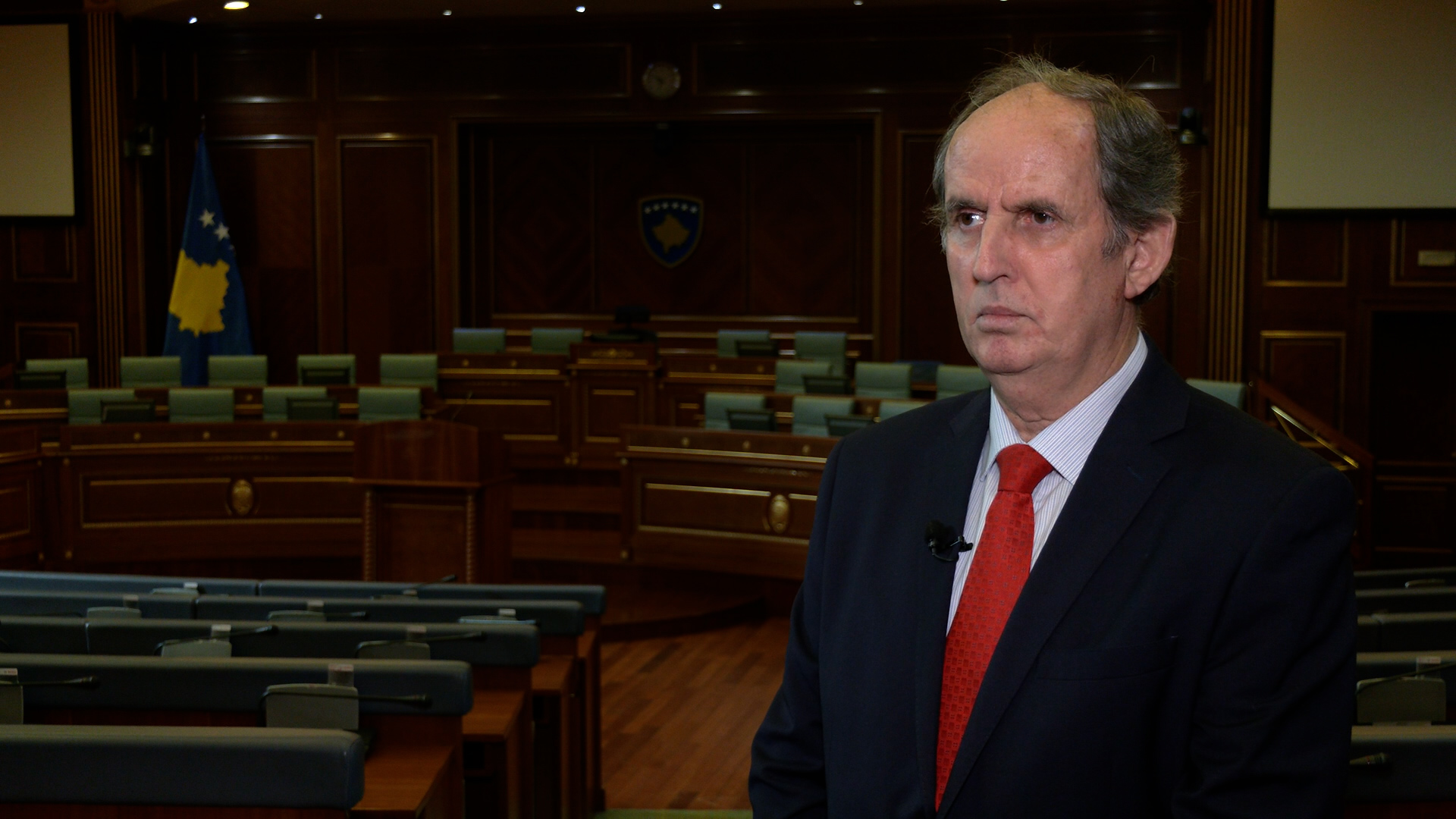
Sali Rexhepi, the Director for Plenary and Procedural Affairs in the Assembly of Kosovo. Photo: BIRN
Rexhepi recalls how, in consultation with the Secretary and the Speaker of the Assembly, he prepared invitations and agenda, ensuring every detail was meticulously arranged.
“It was a session that is difficult to describe in words,” he told BIRN, “they are feelings that are archived in the consciousness of a person so that once in a lifetime opportunity is given.”
During the session, which started slightly after 15:00, the Speaker of the Assembly Jakup Krasniqi began the main speech, followed President Fatmir Sejdiu and Thaçi reading the declaration of independence.
The declaration was then voted on unanimously with 109 votes in favor, marking an unforgettable moment for all present. Serb MPs were not present at the session.
Following the reading and approval of the declaration, it was signed by Sejdiu, Krasniqi, Thaçi, members of the Presidency, heads of parliamentary groups, and MPs.
Rexhepi fondly recalls the moment when the flag was brought in for the first time, ending the session at 17:05.
Despite his impending retirement, Rexhepi’s memories of that historic day remain fresh, a testament to the profound impact of that momentous event in Kosovo’s history.
A different story about the flag
A different perspective on the flag ceremony emerges from former colonel Destan Thaçi, who was then the director of the Police in the Prishtina Region.
Thaci recalls his desire to display the new flag of Kosovo in front of the Police in Prishtina as a symbolic gesture, signifying that all institutions of Kosovo would now be part of a republic.
“We did not have any flags, but [we managed to get them] thanks to Mayor of Prishtina Isa Mustafa at that time, I told him, ‘bring to us three flags’,” Thaçi recounted. “I stopped one and marked it that day, and we went out and lined up the special unit in front and raised the flag you see here now, and then we continued with our tasks.”
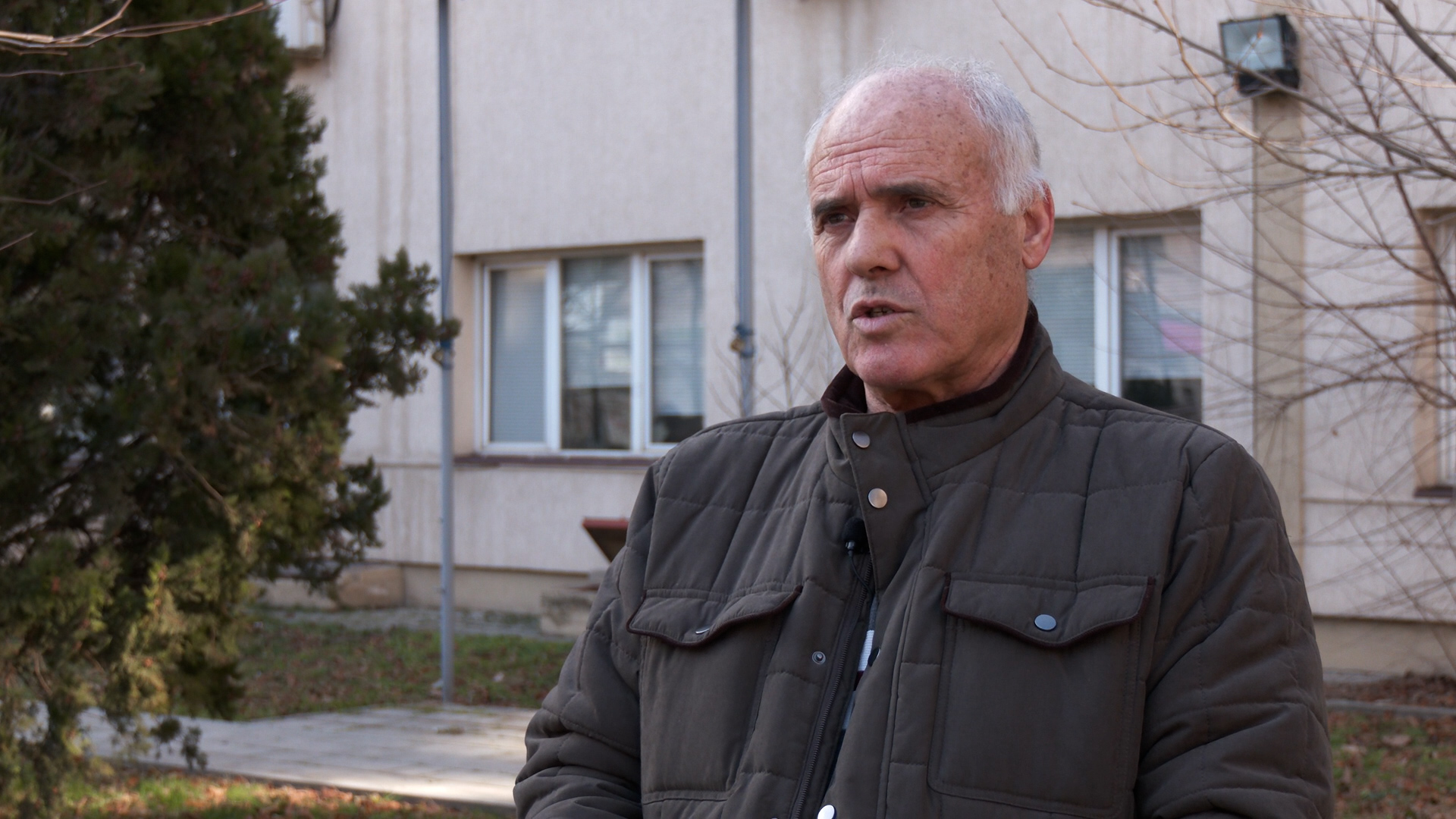
Destan Thaçi, former director of the Police in the Prishtina Region. Photo:BIRN.
Under the supervision of the United Nations, Kosovo had established a Police Service.
The top hierarchy of this service was led by the UNMIK police, and all operations until February 17, 2008, fell under the umbrella of this UN mission.
Kosovo had no army, but with the declaration of independence, the police would transition to become the Kosovo Police.
Thaci, now retired, remembers his efforts to ensure that the Prishtina region remained secure, so that no incident could mar the significance of that date.
Who broke the news?
The breaking news of Kosovo’s declaration of independence was a momentous event witnessed by over 1,000 accredited journalists at the Media Center in the Grand Hotel, a remnant from the former Yugoslavia.
Zijadin Gashi, a journalist for Radio Free Europe and Zëri newspaper, recalled the day starting early, with preparations beginning before 7 a.m.
The journalists divided their work, prepared to cover the day’s events, bracing for the long-awaited decision expected before 4 p.m.
“Radio Free Europe had the news edition at 4 p.m., and it was quite an honor for us to be among the first to report on that important day,” Gashi told BIRN.
Given the large number of international media present, efforts were made to prioritize fair information dissemination, ensuring that false information from the Serbian campaign did not spread and that journalists accurately reported developments in Prishtina.
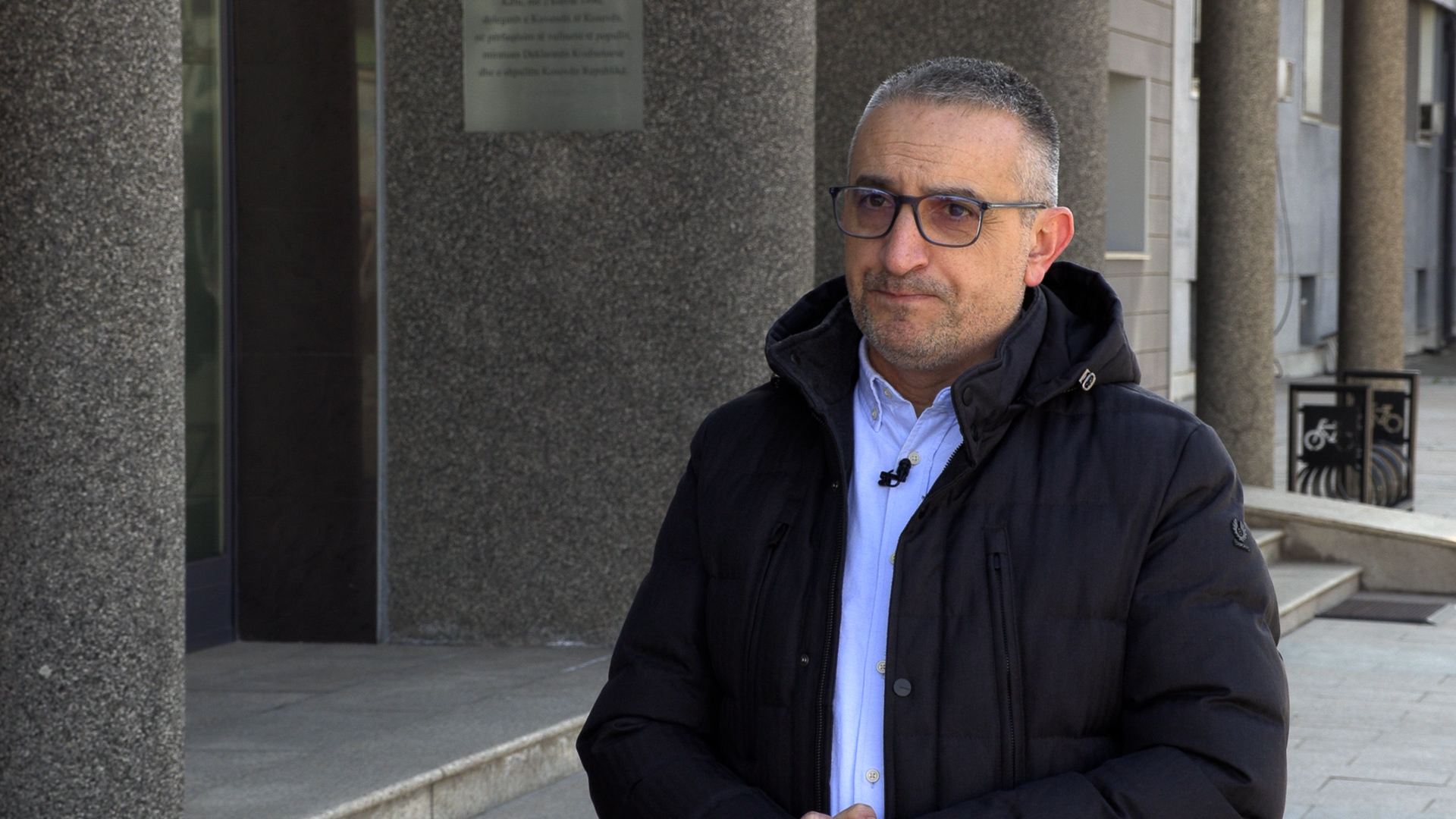
Journalist Zijadin Gashi. Photo:BIRN.
Gashi shared that despite their role as journalists, they couldn’t contain their emotions entirely.
A special aspect of the day was the unity in celebration among all staff, including representatives from various communities, highlighting a moment of shared significance and unity in Kosovo’s history.
“All that we could show as emotion was what was not seen and heard since we were journalists. We cut the independence cake in the newsroom, drank some champagne, and continued working; the celebration lasted 3-4 minutes.”
“Immortal monument”
The NEWBORN monument, which stands as a symbol of Kosovo’s independence, was inaugurated on the evening of February 17, 2008, and remains unbroken, representing the birth of the youngest state in Europe.
Created by Fisnik Ismaili in 2008, the monument has become a significant symbol, with Ismaili continually contributing ideas for its use in each anniversary of Independence.
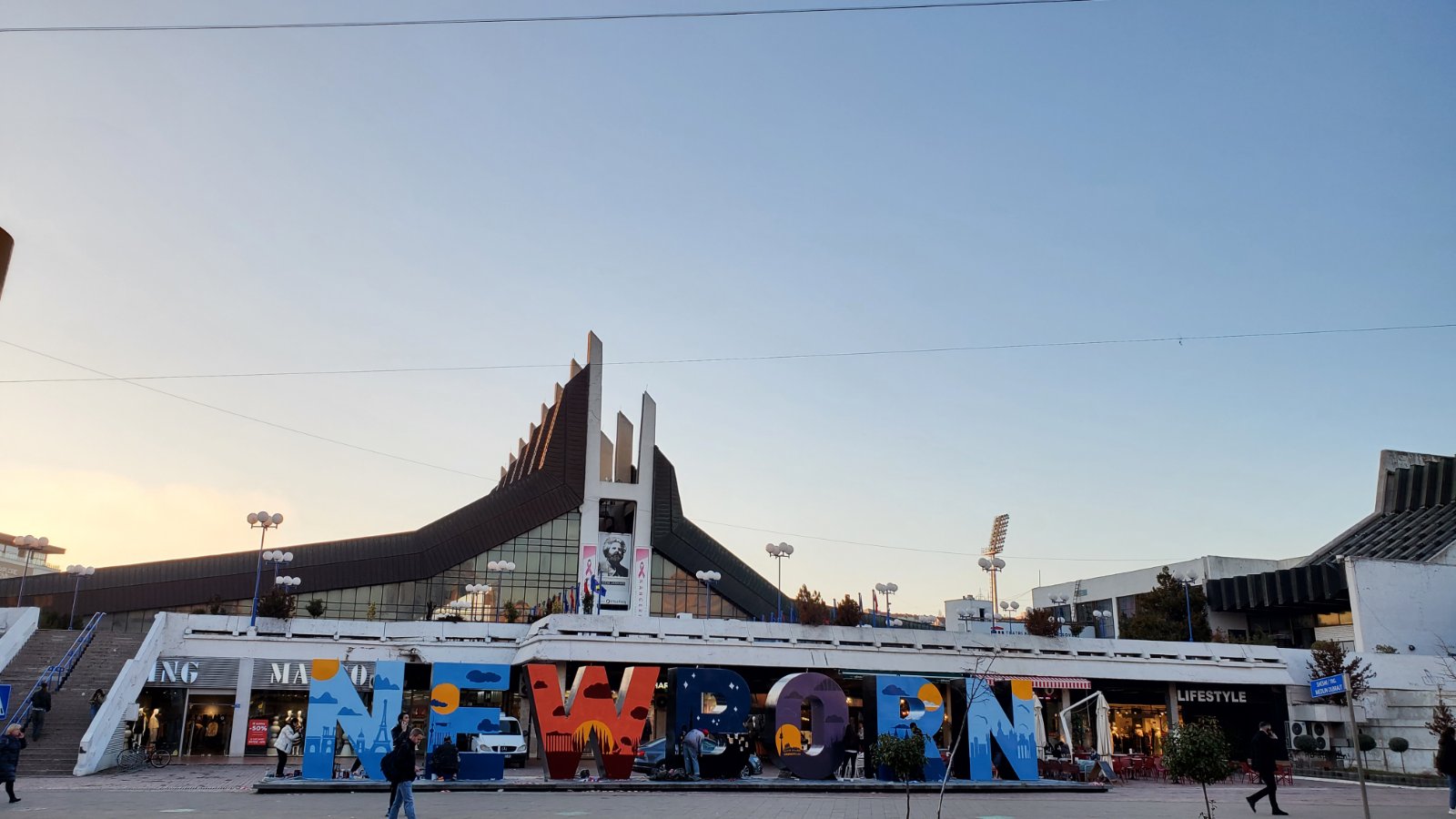
Newborn Monument in Prishtina, Kosovo, Photo: Xhorxhina Bami/BIRN
Located in the center of Prishtina, the monument features the message NEWBORN written in English, to be signed by everyone, including the President, Prime Minister, and citizens.
The preparation for the monument began a few days before its unveiling, away from the public eye.
Muhamet Azemi, the chief engineer of Metal Technique “Asllani”, the company that built NEWBORN, shared an untold story of the relentless work done in cold conditions to prepare the monument for the evening of February 16.
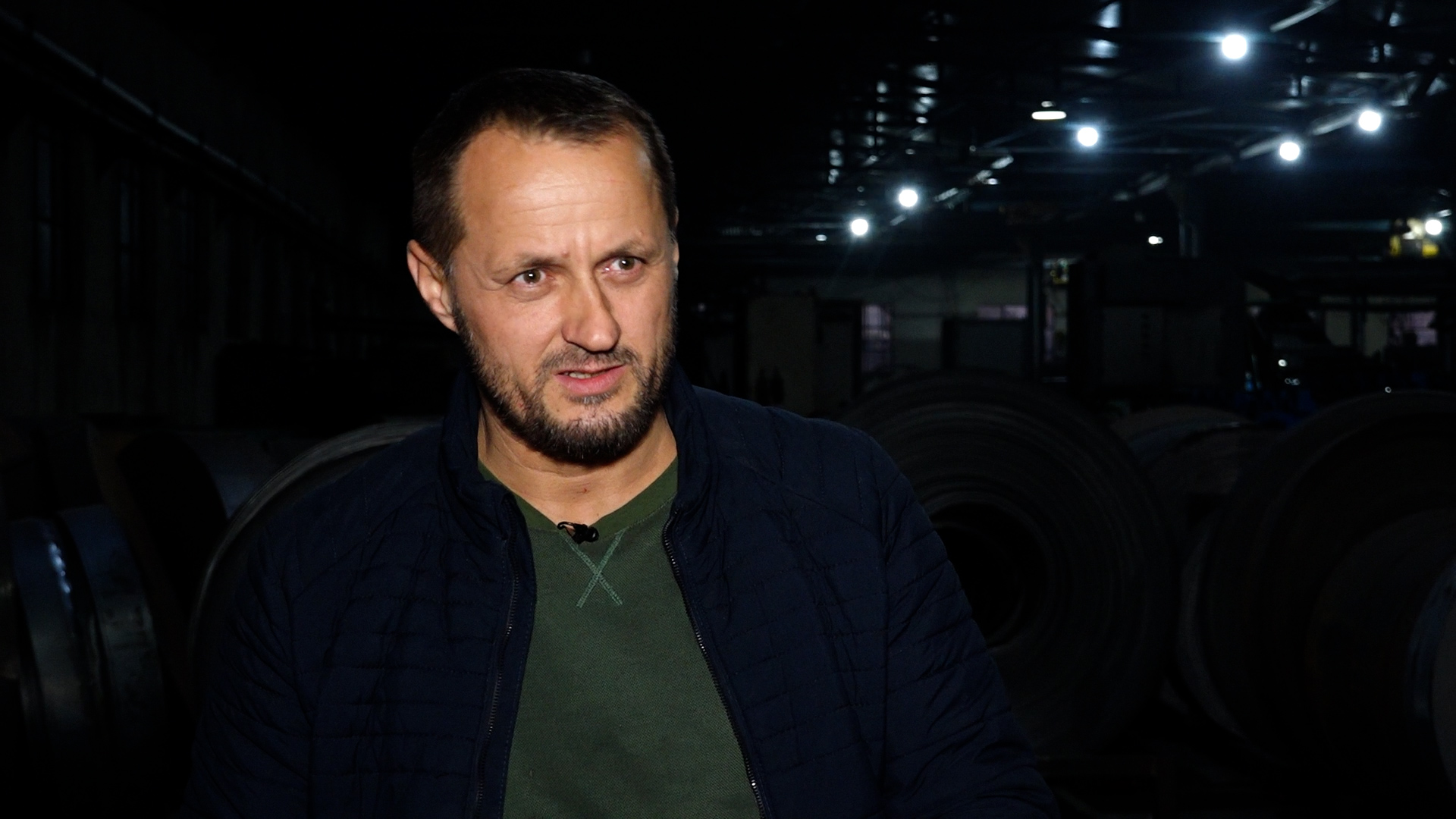
Muhamet Azemi, the chief engineer of Metal Technique “Asllani”, the company that built NEWBORN. Photo:BIRN
“We were not informed that this would be a symbol of Kosovo’s independence. We started from the internal construction to the part of the metal casing. The time was short, and the atmospheric conditions were not favorable for work,” Azemi recalled, highlighting the challenges they faced.
When they learned the purpose of the letters, Azemi explained that they were given two color options, blue and yellow, which proved difficult to dry due to the low temperatures.
“We used different methods to dry it, even working overtime to finish it on time. Because we were willing to work in 3 shifts, it was a special pleasure for us, as such cases do not come often; it was a privilege for us,” Azemi added.
Celebration lasted longer than the day
The celebration of Kosovo’s independence lasted longer than just the day of its declaration.
The announcement of independence once it was made public, emotions ran high, leading to various activities that left a lasting memory.
Xhavit Beqiri, political adviser and spokesman for former President Fatmir Sejdiu, described how the positive news of international recognition that followed the declaration gave reason for a prolonged celebration.
He recalled the mixture of emotions on the day of recognition, as Kosovo gained international acceptance, describing it as a special and extraordinary feeling.
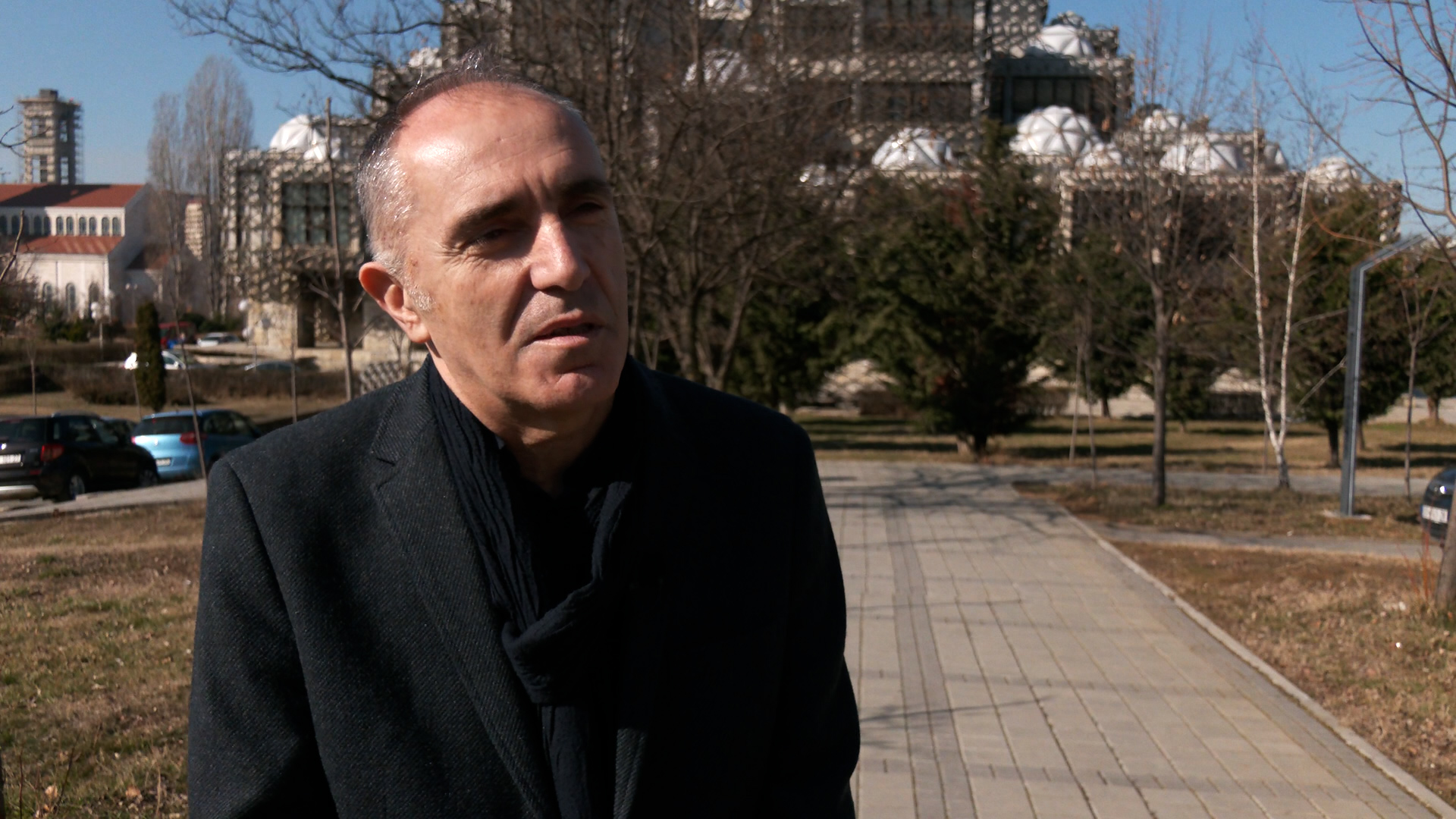
Xhavit Beqiri, political adviser and spokesman for former President Fatmir Sejdiu. Photo: BIRN
“I felt a positive anxiety about how everything would unfold, as I had not experienced much emotional tension, so I have been quite cold,” Beqiri told BIRN.
“Emotions erupted on the day when recognition began, because that’s when Kosovo gained international recognition”.
Kosovo has been recognized by 117 countries so far. The latest recognition came from Israel in 2020.
In addition to the official activities at the central institutions, other celebrations were organized under the patronage of the Presidency.
One notable event was the cutting of a large cake in the shape of Kosovo’s map, which took place two days after independence was declared.
The cake, prepared from scratch, represented the foundation of the state, with its pillars and supports symbolizing the new laws and rules coming into force.
Sokol Kololli, head of the control sector at the construction company “Elsam,” described the challenges in preparing the cake holder.
“The table was in two parts, it had large dimensions, it needed two parts, somewhere around five by five, and then it was completed there, a piece was added, and the cake was placed on it.”
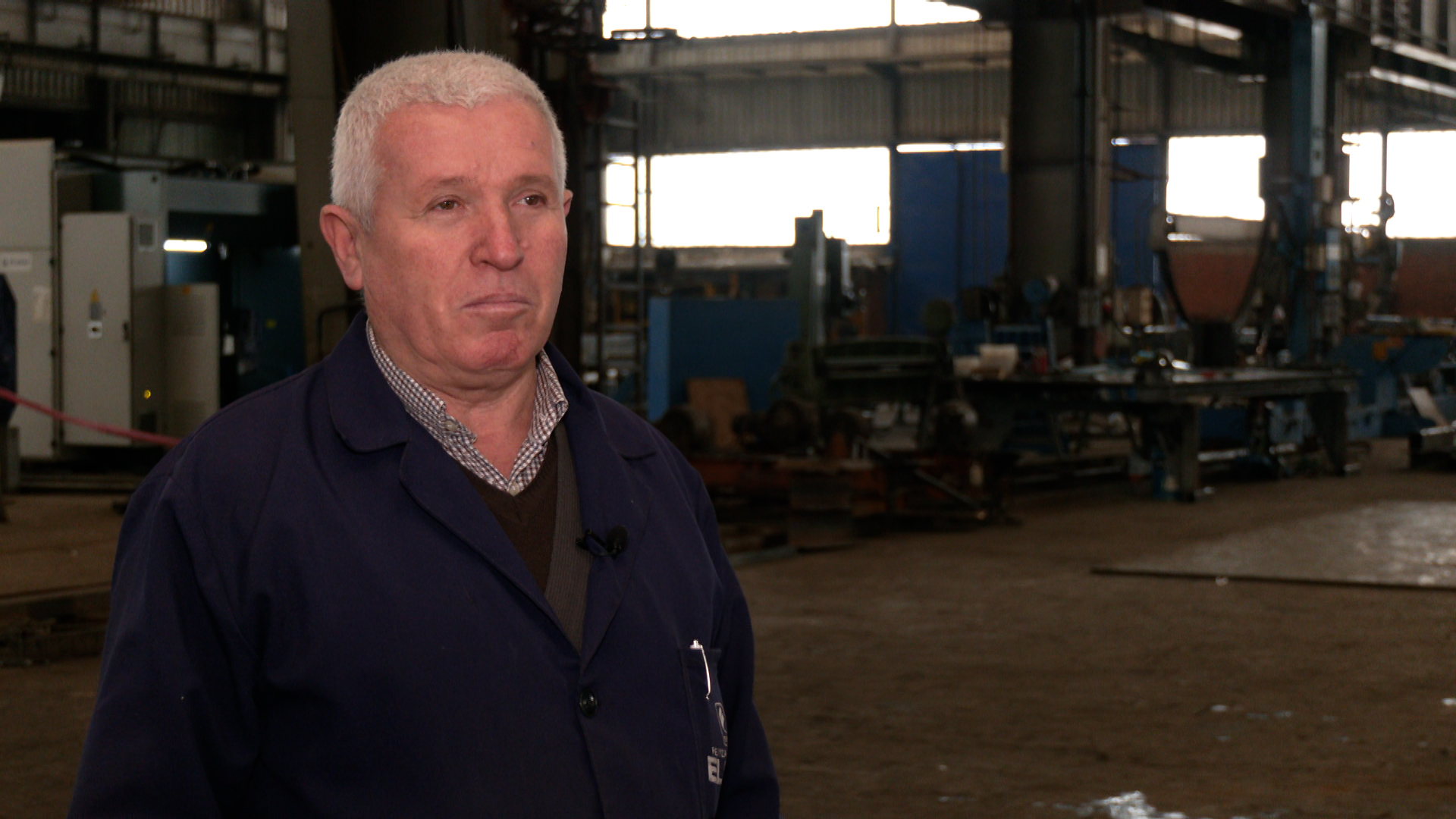
Sokol Kololli, head of the control sector at the construction company “Elsam”. Photo:BIRN
Hysni Krasniqi, also from “Elsam,” expressed pride in contributing symbolically to the festive day, highlighting the efforts of five workers who worked around the clock for four days to prepare the cake table.
On other hand, sixteen years later, Beqiri fondly remembers Kosovo’s independence as a momentous occasion, a culmination of the sacrifices and efforts made for freedom and independence.
“…but fortunately it went like a good wedding where, as they say, not a single glass was broken”, concluded Beqiri.





